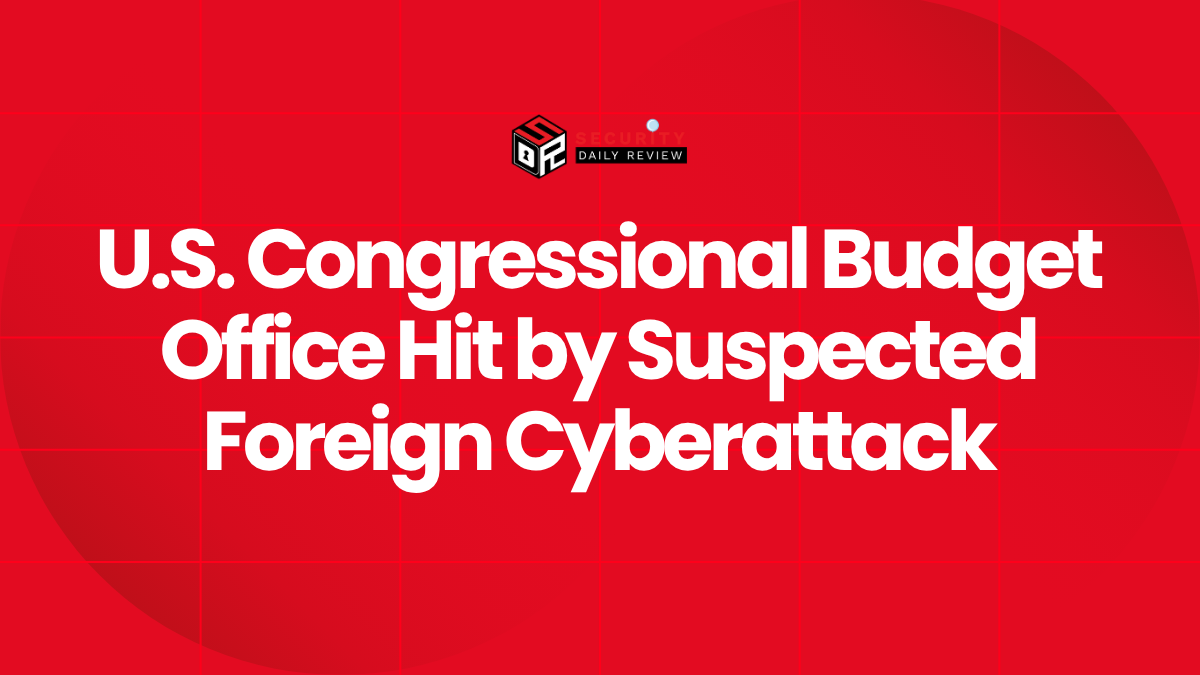A suspected cyberattack on the United States Congressional Budget Office (CBO) has raised fresh alarms about foreign threats to federal institutions. The CBO revealed it had detected unauthorized access to elements of its network, confirming that a cybersecurity incident had occurred. Evidence suggests involvement by a foreign attacker, although the agency has not publicly specified which nation-state may be responsible.
Congressional Budget Office Faces Targeted Cybersecurity Incident
The Congressional Budget Office is tasked with providing budgetary analysis to support legislative decision-making. Though not directly involved in national security or intelligence work, the CBO handles sensitive internal communications and fiscal forecast data that — if compromised — could be leveraged in broader information operations or enable future social engineering attacks. The recent intrusion into the CBO’s infrastructure has renewed concerns about the resilience of U.S. government agencies to well-funded, targeted breaches.
Foreign Attribution Raises Stakes for Government Cybersecurity
According to open statements, the attack is believed to have originated from outside the United States, and preliminary analysis suggests a foreign threat actor was able to gain at least limited access. So far, officials have not disclosed which country is suspected of perpetrating the attack. The categorization of the threat as foreign-owned or -backed elevates the event from a routine security lapse to a potential matter of national cybersecurity concern.
This attack follows a pattern noted by intelligence agencies in recent years, wherein foreign actors increasingly target non-defense branches of government to access auxiliary data. Agencies like the CBO often operate with less mature cybersecurity infrastructure compared to defense entities, making them attractive targets.
Operational Disruption and Data Exposure Remain Under Investigation
CBO officials have not released details on what data may have been accessed or stolen. However, they confirmed that investigative and remediation efforts are active, and external cybersecurity experts are assisting in the response.
Key Implications of the CBO Breach
- Sensitive Budget Forecasts Could Be Exploited : While CBO data is often made public in the form of reports and economic outlooks, certain forecasts and internal deliberations are confidential before publication. Unauthorized access could allow threat actors to understand legislative strategies or sow misinformation.
- Risk of Lateral Movement Across Federal Systems : The extent of the compromise remains unknown. If authentication mechanisms or cross-network trust relationships were affected, attackers could potentially use the CBO as a springboard to access other federal systems.
- Delayed Detection Highlights Visibility Gaps : The breach detection timeline has not been disclosed, but such government cyberattacks often involve stealthy persistence before discovery. The incident emphasizes the need for better threat detection tools across mid-tier agencies.
Broader Context: U.S. Government Targets Increasingly Under Siege
This latest incident aligns with a growing trend of cyberattacks against U.S. federal entities, including the high-profile SolarWinds campaign and ongoing ransomware attacks against municipalities and infrastructure. The nature of the CBO breach suggests that cyber threat actors are expanding their scope to include financial and administrative bodies that may previously have been considered low-priority targets.
The incident also reinforces the reality that foreign adversaries are increasingly adept at conducting highly targeted, low-profile intrusions for strategic gain. Threat actors linked to countries like Russia, China, Iran, and North Korea have previously been associated with long-term espionage campaigns against U.S. services not typically classified as core intelligence entities.
U.S. Response Will Shape Future Defenses
The U.S. government has not yet formally commented on retaliatory steps or sanctions in relation to the CBO incident. However, cybersecurity professionals within the public sector will be closely watching the response — particularly in terms of funding, directives from the Cybersecurity and Infrastructure Security Agency (CISA), and changes to incident response policy.
The Biden administration has taken several proactive measures, such as executive orders mandating improved software supply chain security and federal network logging standards. Whether those yield effective containment and attribution in this case remains to be seen.
“This intrusion only reinforces the importance of cybersecurity readiness across all organizational levels — not just in traditional defense perimeters,” said a federal cybersecurity official involved in incident response coordination.
Continued Vigilance is Needed Across Government Agencies
Although the Congressional Budget Office does not handle classified national security information, the breach illustrates how interconnected U.S. agencies remain vulnerable to exploitation. For cybersecurity professionals tasked with securing federal assets, the lesson is clear: every node in the network presents an opportunity for threat actors — even those outside traditionally ‘high value’ targets.
With the root cause still under investigation and attribution pending, the CBO cyberattack may yet unfold into a broader examination of how foreign adversaries are evolving their operations to quietly undermine U.S. government trust, efficiency, and policymaking infrastructure.










